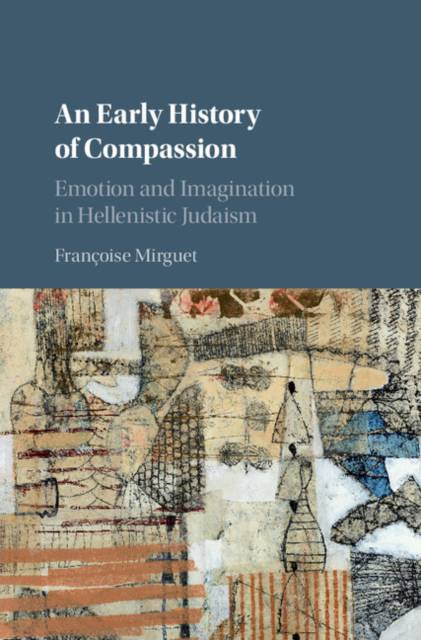
Door een staking bij bpost kan je online bestelling op dit moment iets langer onderweg zijn dan voorzien. Dringend iets nodig? Onze winkels ontvangen jou met open armen!
- Afhalen na 1 uur in een winkel met voorraad
- Gratis thuislevering in België vanaf € 30
- Ruim aanbod met 7 miljoen producten
Door een staking bij bpost kan je online bestelling op dit moment iets langer onderweg zijn dan voorzien. Dringend iets nodig? Onze winkels ontvangen jou met open armen!
- Afhalen na 1 uur in een winkel met voorraad
- Gratis thuislevering in België vanaf € 30
- Ruim aanbod met 7 miljoen producten
Zoeken
An Early History of Compassion
Emotion and Imagination in Hellenistic Judaism
Françoise Mirguet
Hardcover | Engels
€ 172,95
+ 345 punten
Omschrijving
In this book, Françoise Mirguet traces the appropriation and reinterpretation of pity by Greek-speaking Jewish communities of Late Antiquity. Pity and compassion, in this corpus, comprised a hybrid of Hebrew, Greek, and Roman constructions; depending on the texts, they were a spontaneous feeling, a practice, a virtue, or a precept of the Mosaic law. The requirement to feel for those who suffer sustained the identity of the Jewish minority, both creating continuity with its traditions and emulating dominant discourses. Mirguet's book will be of interest to scholars of early Judaism and Christianity for its sensitivity to the role of feelings and imagination in the shaping of identity. An important contribution to the history of emotions, it explores the role of the emotional imagination within the context of Roman imperialism. It also contributes to understanding how compassion has come to be so highly valued in Western cultures.
Specificaties
Betrokkenen
- Auteur(s):
- Uitgeverij:
Inhoud
- Aantal bladzijden:
- 278
- Taal:
- Engels
Eigenschappen
- Productcode (EAN):
- 9781107146266
- Verschijningsdatum:
- 12/10/2017
- Uitvoering:
- Hardcover
- Formaat:
- Genaaid
- Afmetingen:
- 157 mm x 234 mm
- Gewicht:
- 521 g

Alleen bij Standaard Boekhandel
+ 345 punten op je klantenkaart van Standaard Boekhandel
Beoordelingen
We publiceren alleen reviews die voldoen aan de voorwaarden voor reviews. Bekijk onze voorwaarden voor reviews.











